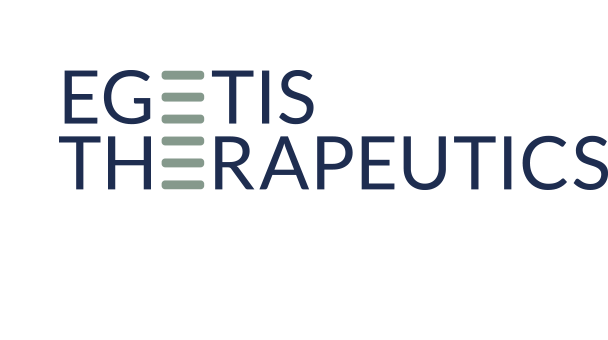Egetis receives positive EMA opinion for orphan designation of Emcitate for treatment of Resistance to Thyroid Hormone type beta (RTH-β)
March 24, 2022
Stockholm, Sweden, March 24, 2022. Egetis Therapeutics AB (publ) (Nasdaq Stockholm: EGTX) today announced that the Committee for Orphan Medicinal Products (COMP) of the European Medicines Agency (EMA) has adopted a positive opinion on the Orphan Medicinal Product submission for the Company’s lead candidate drug Emcitate (tiratricol) for the treatment of Resistance to Thyroid Hormone type beta (RTH-β). RTH-β is a distinct indication, with no overlap in patient populations, to the previously granted orphan designation for MCT8 deficiency.
Emcitate is Egetis’ lead candidate drug, in Phase III clinical development targeting marketing applications in the US and Europe in 2023 for the treatment of MCT8 deficiency. The positive opinion adopted by the EMA on the Orphan Medicinal Product submission for RTH-β follows the Orphan Drug Designation for the treatment of RTH-β recently granted by the US Food and Drug Administration (FDA). The European Commission is responsible for granting the orphan designation based on the positive opinion from EMA.
RTH- β is a rare inborn genetic disorder caused by mutations in one of the two subtypes of thyroid hormone receptors and leads to impaired thyroid hormone signaling in tissues dependent on the thyroid hormone receptor beta subtype. Clinical manifestations of RTH-β include a mix of symptoms of thyrotoxicosis and hypothyroidism in different tissues, including goiter, hepatic steatosis and dyslipidemia, impaired hearing and color vision, neurocognitive dysfunction and cardiovascular stress. The incidence is estimated to be between 1 per 20,000–40,000 live births. At present there is no approved therapy available for patients suffering from RTH-β.
“We are delighted to receive a positive opinion from EMA for a second orphan indication for Emcitate, in addition to MCT8 deficiency. RTH-β is a related but distinct condition to MCT8 deficiency and a potential indication expansion into thyroid hormone resistance would significantly broaden the number of eligible patients that could benefit from Emcitate treatment. Together with the ODD for RTH-β granted by the US FDA, this further encourages us to continue to explore the potential development path to market approval also for this disease, which could add substantial value to and extend the lifecycle of the Emcitate program.” said Nicklas Westerholm, CEO, Egetis Therapeutics.
Emcitate previously holds orphan drug designation (ODD) in both the EU and the US for the treatment of MCT8 deficiency and recently received ODD for RTH- β by the US FDA. Emcitate has also been granted Rare Pediatric Disease Designation (RPD) and Fast Track status by the FDA.
In the EU, orphan drug status is given to products that treat, prevent, or diagnose a disease which is life-threatening or chronically debilitating and affects less than 5 in 10,000 people across the EU. Sponsors who obtain orphan designation in the EU benefit from protocol assistance, a type of scientific advice specific for designated orphan medicines, waivers or reductions of certain fees as well as a ten-year market exclusivity once the medicine is on the market. For more information about orphan designation in the EU, please see www.ema.europa.eu/en/human-regulatory/overview/orphan-designation-overview
For further information, please contact:
Nicklas Westerholm, CEO
Tel. +46 (0) 733 542 062
[email protected]
Karl Hård, Head of Investor Relations and Communications
Tel. +46 (0) 733 011 944
[email protected]
The information was submitted for publication, through the agency of the contact persons set out above, on March 24, at 8:00 CET.
About Resistance to Thyroid Hormone type beta (RTH-β)
Resistance to thyroid hormone type beta (RTH-β) is a rare genetic disorder with high unmet medical need and no approved treatment, affecting 1:20,000-40,000 individuals. Thyroid hormone is crucial for the development and metabolic state of virtually all tissues and acts through binding to a nuclear receptor resulting in transcription of a range of hormone responsive genes. There are two subtypes of thyroid hormone receptors in the body (alpha and beta), preferentially expressed in different tissues. RTH-β is caused by mutations in the thyroid hormone receptor beta and leads to impaired thyroid hormone signaling in tissues dependent on this receptor subtype. Clinical manifestations of RTH-β include a mix of symptoms of thyrotoxicosis and hypothyroidism in different tissues, including goiter, hepatic steatosis and dyslipidemia, impaired hearing and color vision, neurocognitive dysfunction and cardiovascular stress. RTH-β affects both genders equally and normally displays an autosomal dominant inheritance pattern. Homozygous disease is extremely rare and results in pronounced symptoms normally leading to death during early childhood.

